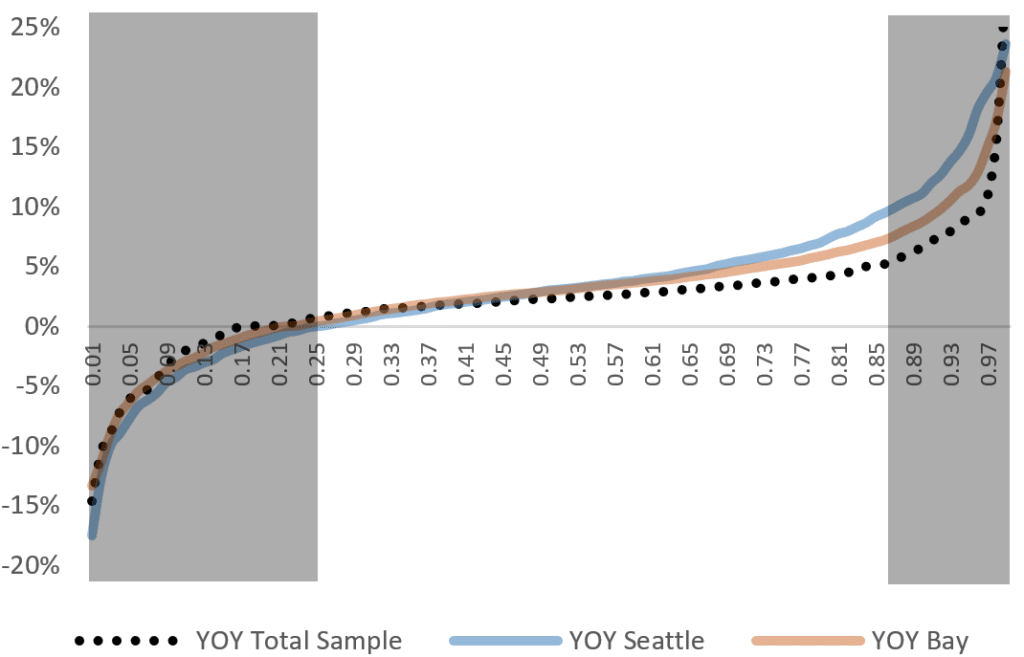How to Choose the Right Salary Surveys for Your Company
Choosing the right salary surveys for your organization is an essential task for the Compensation team. The cost of salary surveys can be considerable, but the cost of using the wrong salary survey can carry significantly greater costs. Having a good sense of what you need and what the surveys will provide can dramatically improve the quality of your survey library.
Questions to Ask Your Own Organization When Considering Salary Surveys
When building your salary survey library, it is important to conduct a self-assessment of your Organization to determine what survey may meet your needs most effectively. Given the number of salary surveys that are available, creating your own north-star will help guide you to the survey that is most likely to meet your needs.
These 10 questions, below, may be helpful in determining what problems you are trying to solve, and help guide which surveys are right for your organization.
| Question | Response |
|---|---|
| What is the primary objective of purchasing a salary survey? Are we looking to establish competitive pay scales, ensure internal pay equity, or assess the effectiveness of our current compensation strategy? | |
| What are the key industries, job roles, and geographic locations that we need to focus on for our salary survey data? | |
| What is our company size and structure, and how does that affect our compensation strategy and the need for salary data? | |
| Are there any specific challenges or issues we are facing with our current compensation strategy that we want to address with the help of a salary survey? | |
| What types of survey methodologies are we comfortable with? – Employer-reported? – Employee-reported or crowd-sourced? – Algorithmically derived market data? – Hiring range data from sources like Squirrel? | |
| Do we have the necessary resources and tools to analyze and implement the data effectively? | |
| Are there any unique or niche job roles within our company that might require specialized salary data? | |
| What is the timeline for implementing changes to our compensation strategy? How often do we plan to review and update our salary data? | |
| How important is data privacy and compliance to our organization? Are there any specific regulations or industry standards we need to adhere to when handling salary data? | |
| What is our budget for purchasing a salary survey? Are we looking for a one-time purchase or an ongoing subscription? | |
| Who will be responsible for managing and implementing the salary survey data within our organization? Will we need any additional training or support to ensure the effective use of the data? |
Answering these questions first will help to narrow down the list of suitable salary survey sources and give a better probability that the survey(s) you choose are a good fit. For example, if your Organization has a policy against providing confidential information to third parties, the surveys which are available to participants only may not be available for you. Or if your CHRO doesn’t support crowd-sourced or algorithmically driven data, some surveys will not be an option.
Additionally, if you are purchasing multiple surveys, one consideration is how the job levels for the surveys align to one another. If both surveys have 6 levels of individual contributors and 6 levels of management, for example, your benchmarking analysis will be much easier than trying to marry multiple surveys with different job hierarchies.
Questions to Ask Salary Survey Vendors
Once you have addressed the questions above and have narrowed down a list of salary survey vendors, you may begin conducting outreach to the survey companies to demo their products and tools to see what the best fit is. When evaluating survey vendors, we recommend using a standard checklist of questions and ranking each survey based on their answers.
The table below includes a list of questions that may be helpful in determining survey suitability for your organization.
| Question | Response |
|---|---|
| What is the scope and depth of your salary survey data? Who are the participating companies? How many industries, job roles, and regions are covered? | |
| How frequently is your salary data updated? | |
| What is the sample size of the data collected? How do you ensure that the data is representative of the market? | |
| How do you gather your data? What measures do you take to ensure the accuracy and reliability of the information? | |
| How do you handle the data normalization and standardization process to ensure consistency and comparability across various job roles and industries? Does the data skew heavily toward one region or one industry? | |
| Can your salary survey data be customized to match the specific needs of our company, such as industry, company size, or location? | |
| Does your platform offer any analytical tools or dashboards to help us visualize and interpret the salary data for better decision-making? | |
| How do you address issues related to data privacy and compliance? What measures do you have in place to ensure the confidentiality of the information collected? | |
| What are the pricing options for your salary survey data? Are there any additional fees or charges for customizations or support services? | |
| Do you provide any additional resources or support, such as consulting services or educational materials, to help us make the most of your salary survey data? |
Most salary survey vendors should be able to easily address these questions by providing their participant list, job list, and an overview of their data collection methodology.
Benefits of Purchasing Multiple Salary Surveys
Every company has its own unique set of challenges when it comes to benchmarking roles and choosing the surveys they need, but best practices suggest that using more than one data source will help control for year-over-year volatility as cohorts change.
Year-Over-Year Volatility
Salary survey data changes annually, but sometimes not as one would expect. Especially in recent years, we would expect to see that the market data for nearly all jobs has increased. However, traditional, employer-reported surveys do not have a consistent cohort each year, and the data can change in unexpected ways as participants come and go.

In this image, we conducted an analysis of a survey to see how much the data moved in two consecutive years. Our study found that 25% of the survey jobs DECREASED and nearly 15% of jobs had a greater than 10% INCREASE from one year to the next. This volatility is indicative of cohort changes, rather than actual market fluctuation.
Consider an industry-specific Salary Survey
Although companies compete for talent across all industries, having an industry-specific salary survey that has your specific competitors can be invaluable. Knowing that you are comparing your rates of pay to your peers, especially for highly specialized jobs, can provide deeper insight into the competitive labor market. However, it is important not to over-index your market pricing on an industry-specific survey for roles that you are not recruiting or losing talent to within that industry. For example, market pricing an Accountant, which is a job across all industries, in a specific industry may lead to pay misalignment given that industry surveys are usually a smaller dataset.
Supplement Your Salary Surveys With New Data Sources Such as Squirrel
Our general recommendation is that companies should consider 3 survey sources that they are comfortable with, and a subscription to Squirrel, which will provide more current and detailed data than the surveys are able to do, due to anti-trust and safe harbor guidelines. Squirrel is the only compensation-specific data source, developed by compensation practitioners that provides real-time data and company-specific data collected from job postings. By using publicly available data made possible by recent pay transparency laws, Squirrel data provides the most current and most detailed look at the hiring market.
By combining Squirrel and traditional salary surveys, the Compensation team will have a considerably more holistic and complete view of the market and what it takes to be competitive, as described in these Squirrel use cases.
Conclusion
Salary surveys are an integral part of the Compensation function and to be successful, having the right surveys in place is a must. Thoughtful discussion of the questions above with salary survey companies can greatly improve the survey purchasing process and ensure that the surveys in your library meet your needs.



No responses yet